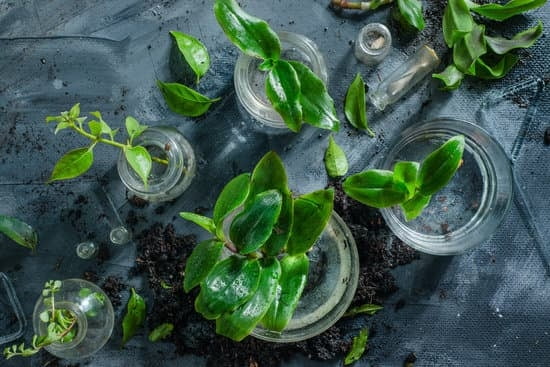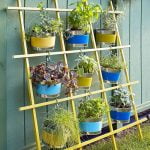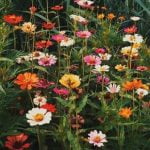Are you interested in starting a small vegetable garden but unsure where to begin? Master Gardener ideas can help you get started on the right foot. From planning and designing the layout to choosing the right vegetables and implementing efficient irrigation systems, their expertise is invaluable for success.
One of the key benefits of starting a small vegetable garden is the ability to grow your own fresh produce right at home. Not only does this provide a convenient source of healthy food, but it also allows you to reduce your environmental impact by minimizing transportation and packaging waste. Additionally, gardening has been shown to have numerous mental and physical health benefits, making it a rewarding hobby for individuals of all ages.
Master Gardeners play a crucial role in helping individuals successfully plan and design their small vegetable gardens. By utilizing their knowledge and expertise, gardeners can maximize space, choose the right vegetables for their specific needs, prepare and maintain soil properly, implement efficient irrigation systems, and even manage pests naturally. With their guidance, even those with limited gardening experience can enjoy a bountiful harvest from their small garden plot.
Importance of Master Gardener Expertise in Planning and Designing the Garden Layout
Master Gardeners are well-versed in the art of planning and designing garden layouts, especially when it comes to small vegetable gardens. Their expertise is invaluable when it comes to making the most of limited space while still ensuring a bountiful harvest. By consulting with a Master Gardener, you can benefit from their knowledge and experience in creating a functional and aesthetically pleasing layout that maximizes productivity.
Utilizing Vertical Space
One of the key strategies recommended by Master Gardeners for small vegetable gardens is utilizing vertical space. This involves growing plants upward on trellises, stakes, or even hanging baskets to make the most of limited ground space. Vining vegetables like cucumbers, peas, and tomatoes are excellent candidates for vertical gardening techniques. By going vertical, you can increase your growing area significantly without taking up extra square footage in your garden.
Companion Planting
Another valuable concept advocated by Master Gardeners is companion planting, which involves planting different crops together to maximize space, deter pests, and promote healthy growth. For example, planting basil next to tomatoes can enhance the flavor of the tomatoes and repel insects that might damage them. By carefully selecting plant combinations based on their compatibility and benefits to each other, you can optimize your small vegetable garden for success.
Container Gardening
For those with extremely limited space or no access to traditional garden beds, container gardening is a popular option endorsed by Master Gardeners. Containers come in various sizes and materials, making them versatile for growing a wide range of vegetables in small spaces like patios, balconies, or even windowsills.
With proper drainage and adequate sunlight, container gardening allows you to cultivate fresh produce without needing a large plot of land. Master Gardeners can provide guidance on choosing the right containers and plants for your specific needs.
Maximizing Space
Starting a small vegetable garden in limited space can be a rewarding and fulfilling experience for any gardening enthusiast. Master gardeners have a wealth of knowledge and expertise when it comes to maximizing space and creatively utilizing small areas for vegetable gardening. With their guidance, individuals can make the most out of even the tiniest of spaces to grow a variety of vegetables.
Vertical Gardening
One creative idea for utilizing small areas for vegetable gardening is through vertical gardening. This technique involves growing plants upward using structures like trellises, stakes, or hanging baskets. Master gardeners recommend planting vining vegetables such as cucumbers, peas, and tomatoes vertically to save space while still producing a bountiful harvest. Vertical gardening not only maximizes space but also adds visual interest to the garden.
Container Gardening
Another popular method suggested by master gardeners for small-space vegetable gardening is container gardening. This involves growing vegetables in containers such as pots, buckets, or raised beds. Container gardening allows individuals to place their vegetable plants on patios, balconies, or even windowsills, making it ideal for those with limited outdoor space. Master gardeners recommend choosing suitable containers based on the type of vegetables being grown and ensuring proper drainage to prevent waterlogging.
Interplanting and Succession Planting
Master gardeners also encourage interplanting and succession planting techniques in small vegetable gardens to maximize space and increase yield. Interplanting involves planting different crops close together that complement each other’s growth patterns or discourage pests naturally.
On the other hand, succession planting involves sowing new seeds or seedlings as soon as one crop is harvested to ensure continuous production throughout the growing season. With these creative ideas and expert advice from master gardeners, anyone can successfully start a small vegetable garden regardless of limited space constraints.
Choosing the Right Vegetables for Small Gardens
When it comes to starting a small vegetable garden, choosing the right vegetables is crucial for success. Master gardeners offer valuable recommendations on selecting varieties that are well-suited for limited space and still provide a bountiful harvest. One popular choice among master gardeners for small gardens is container-friendly vegetables such as cherry tomatoes, peppers, and herbs like basil and parsley. These plants thrive in pots or hanging baskets, making them ideal for balconies, patios, or even windowsills.
Another important factor to consider when choosing vegetables for small gardens is the growth habits of the plants. Master gardeners often suggest opting for compact or dwarf varieties that require less room to spread out. For example, bush beans, mini cucumbers, and petite lettuces are excellent options for maximizing space in a confined area without sacrificing yield. Additionally, vertical gardening techniques can be employed with climbing vegetables like pole beans or peas to make the most of limited vertical space.
Master gardeners also recommend selecting vegetables that have a short growing season or can be harvested continuously throughout the year. Quick-maturing crops such as radishes, salad greens, and baby carrots are perfect choices for small gardens as they allow gardeners to enjoy fresh produce in a relatively short time frame.
Herbs like chives and mint can also be harvested repeatedly, providing a flavorful addition to meals without taking up much space. By following these expert recommendations on vegetable selection, novice gardeners can make the most of their small gardening spaces and enjoy a successful harvest.
| Vegetable | Recommendation |
|---|---|
| Cherry Tomatoes | Perfect for containers and hanging baskets |
| Bush Beans | Compact variety ideal for small gardens |
| Radishes | Quick-maturing crop suitable for limited space |
Tips for Soil Preparation and Maintenance in Small Vegetable Gardens
For small vegetable gardens, proper soil preparation and maintenance are essential to ensure the health and productivity of your plants. Master gardeners have valuable insights and tips to help you create the optimal growing environment for your veggies. Here are some expert recommendations for soil preparation and maintenance in small vegetable gardens:
- Test your soil: Before planting, it’s crucial to test your soil to determine its pH level and nutrient content. This will help you make informed decisions about which amendments may be necessary to create the ideal growing conditions for your vegetables.
- Amend the soil: Based on the results of your soil test, add organic matter such as compost, aged manure, or peat moss to improve soil structure, fertility, and drainage. Master gardeners advise against using synthetic fertilizers in small gardens due to the risk of nutrient imbalances.
- Practice crop rotation: To prevent depletion of nutrients and reduce the risk of disease buildup in your small vegetable garden, follow a crop rotation plan recommended by master gardeners. This involves planting different types of crops each season in designated areas to promote soil health and plant vitality.
In addition to these tips, master gardeners also recommend regular weeding, mulching, and monitoring moisture levels in order to maintain a healthy balance in your small vegetable garden. By following their expert advice on soil preparation and maintenance, you can set yourself up for a successful growing season with bountiful harvests of fresh, homegrown produce.
Implementing Efficient Irrigation Systems
Implementing an efficient irrigation system is crucial for the success of a small vegetable garden. With limited space, it’s essential to ensure that every plant receives the right amount of water without wastage. Master gardeners often recommend the use of drip irrigation systems for small gardens, as they deliver water directly to the base of the plants, minimizing evaporation and runoff. This also helps prevent water from reaching unwanted areas, such as walkways or neighboring plants.
Here are some expert tips for implementing efficient irrigation systems in small spaces:
- Consider installing a timer on your irrigation system to ensure consistent watering schedules, especially during hot summer months.
- Use soaker hoses or drip lines to deliver water slowly and steadily to the roots of plants, promoting deep root growth and reducing water loss through evaporation.
- Group plants with similar watering needs together to avoid overwatering some while underwatering others.
By following these expert recommendations, you can ensure that your small vegetable garden receives adequate water without wasting this precious resource. Not only will an efficient irrigation system help your plants thrive, but it will also save you time and effort in manual watering.
Remember that proper watering is key to a successful harvest in a small vegetable garden, so take the time to plan and implement an irrigation system that works best for your specific space and plant requirements. With master gardener ideas guiding you, you’ll be on your way to enjoying bountiful yields from your compact garden oasis.
Pest Control Strategies for Small Gardens
When it comes to maintaining a small vegetable garden, dealing with pests can be a common challenge. However, there are several natural solutions and prevention methods that master gardeners recommend for keeping your plants healthy and pest-free. One effective strategy is companion planting, where certain plants are grouped together to deter pests or attract beneficial insects.
For example, marigolds can help repel nematodes, while basil can repel mosquitoes and flies. By incorporating these companion plants into your small garden, you can create a more balanced ecosystem that discourages the presence of harmful pests.
Another key pest control method for small gardens is practicing good garden hygiene. This involves regularly removing any dead or decaying plant material, as well as weeds that may harbor pests. By keeping your garden clean and free of debris, you can reduce the likelihood of pest infestations taking hold.
Additionally, rotating your crops each season can help prevent the buildup of pests that target specific plants. This practice disrupts their life cycles and reduces the risk of widespread damage to your vegetable garden.
In addition to preventative measures, master gardeners also recommend using natural remedies to combat pests in small gardens. For instance, creating homemade insecticidal soaps or sprays using ingredients like neem oil, garlic, or cayenne pepper can effectively deter common garden pests without the use of harsh chemicals.
These natural solutions are not only environmentally friendly but also safer for both your plants and local wildlife. By following these pest control strategies from master gardeners, you can maintain a thriving and healthy small vegetable garden for seasons to come.
| Pest Control Strategies | Natural Solutions |
|---|---|
| Companion Planting | Marigolds to repel nematodes |
| Garden Hygiene | Removing dead plant material regularly |
| Natural Remedies |
Harvesting and Enjoying the Fruits of Your Labor
When it comes to starting a small vegetable garden, the joy of harvesting and enjoying the fruits of your labor is truly rewarding. Master gardeners offer invaluable tips for ensuring success in small-scale gardening projects. One essential aspect of reaping a bountiful harvest is proper timing.
Understanding when to harvest different vegetables is crucial for optimal flavor and freshness. Master gardeners recommend closely monitoring the growth of your plants and harvesting at the right moment to maximize their taste and nutritional value.
Another key tip from master gardeners is to practice succession planting in small vegetable gardens. Succession planting involves sowing new seeds or transplanting seedlings as soon as one crop is harvested, allowing for continuous yields throughout the growing season.
This technique not only maximizes the productivity of your garden but also ensures a steady supply of fresh produce for you to enjoy. By strategically planning your planting schedule, you can make the most of limited space and resources while enjoying a variety of homegrown vegetables.
In addition to harvesting at the right time and implementing succession planting, master gardener ideas emphasize the importance of proper storage and preservation methods. Whether you are enjoying your freshly picked vegetables immediately or storing them for later use, it’s essential to handle them with care to maintain their quality.
Master gardener tips may include recommendations for storing specific vegetables in cool, dark places or preserving them through methods like freezing or canning. By following these expert suggestions, you can extend the lifespan of your harvest and continue to savor the flavors of your small vegetable garden long after the growing season ends.
Conclusion
In conclusion, starting a small vegetable garden can offer numerous benefits, from providing a sustainable source of fresh produce to promoting a deeper connection with nature. By incorporating the expertise and guidance of master gardeners, individuals can effectively plan, design, and maintain their small gardens for optimal productivity and enjoyment.
Master gardeners play a vital role in helping individuals make the most of their small gardening space by offering creative ideas for layout design and plant selection. Their recommendations on maximizing space and choosing the right vegetables can make a significant impact on the success of a small-scale vegetable garden.
Furthermore, by following master gardener tips for soil preparation, irrigation systems, pest control strategies, and harvesting techniques, readers can ensure the health and productivity of their small vegetable gardens. Implementing these expert recommendations can lead to a rewarding gardening experience and ultimately allow individuals to enjoy the fruits of their labor. Overall, embracing master gardener ideas for starting small vegetable gardens can pave the way for a successful and fulfilling gardening journey.
Frequently Asked Questions
What Is the Best Layout for a Vegetable Garden?
The best layout for a vegetable garden depends on the space available and the types of vegetables you want to grow. It is important to consider factors like sunlight exposure, soil quality, and ease of access for planting and harvesting.
Some common layouts include raised beds, square foot gardening, or traditional rows. Ultimately, the best layout is one that maximizes space efficiency and allows for proper plant growth.
How Do You Organize a Small Vegetable Garden?
Organizing a small vegetable garden involves careful planning and strategic placement of plants. Consider factors like companion planting, which involves growing complementary plants together to maximize space and deter pests.
Utilize vertical gardening techniques such as trellises or hanging baskets to make use of vertical space. Regular maintenance, including weeding and watering schedules, is crucial to keep a small vegetable garden organized and thriving.
How Do You Start a Mini Vegetable Garden?
Starting a mini vegetable garden can be a fun and rewarding experience. Begin by selecting a sunny location with good soil drainage for your garden plot or containers. Choose vegetables that are well-suited for small spaces such as lettuce, tomatoes, and herbs.
Prepare the soil by adding compost or organic matter to improve fertility. Regular watering and monitoring for pests will help ensure the success of your mini vegetable garden. Enjoy watching your veggies grow!

Welcome to my gardening blog! I am passionate about plants and enjoy sharing my knowledge and experiences with others. In this blog, I will write about everything related to gardening, from tips on how to get started to updates on my own garden projects.





